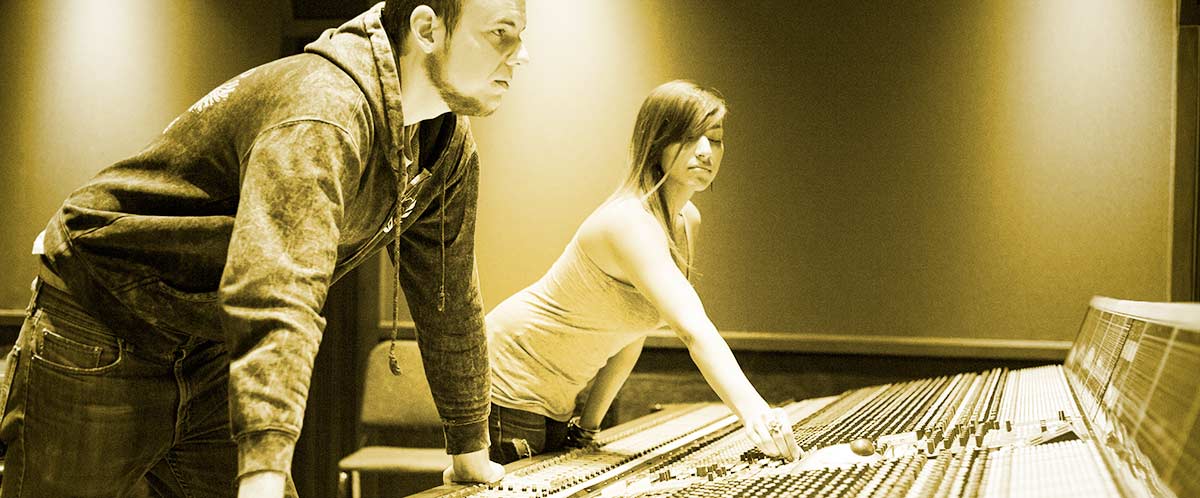Please fill out the following information, and RRFC Admissions will contact you to discuss our program offerings:
Issue #62
by L. Swift and Jeff McQ


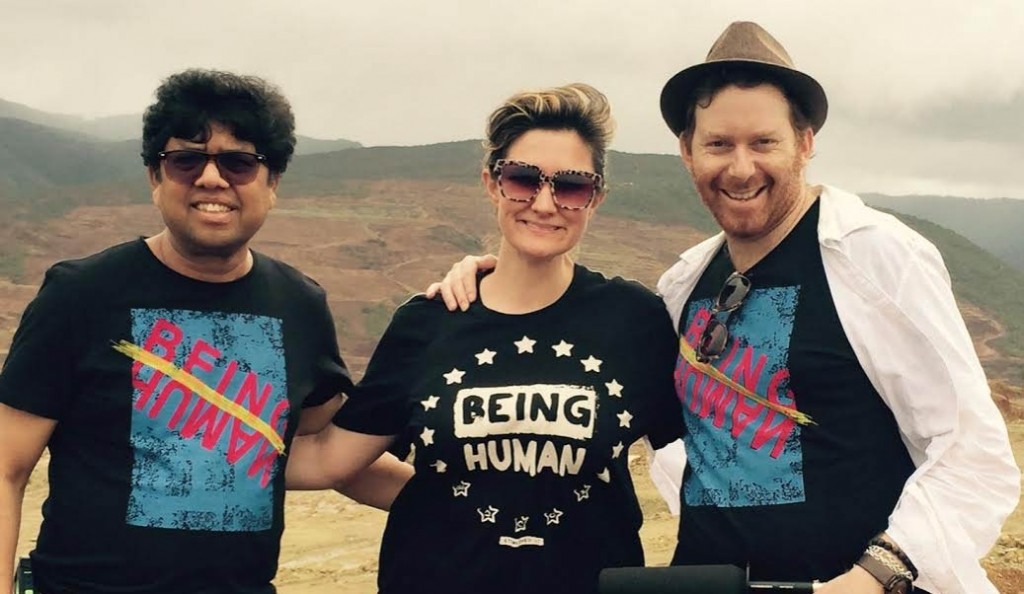 Just three months into his Film Connection apprenticeship, Nelson Kelkar has been getting something of a crash course in filmmaking, having recently accompanied his mentors Bayou Bennett and Daniel Lir (aka, the Dream Team) to the Philippines for a documentary film shoot!
Nelson’s search for a film school began in South Carolina, where he was currently living, but nothing seemed to be a good fit. “They all have a program, like two years, three years,” he says. “A person like me who has a lot of responsibility…cannot do two years.” Coming across the Film Connection, he decided to enroll—and specifically, he decided to come to California to be mentored by husband-wife filmmaking duo Bayou and Daniel of Dolce Films in Los Angeles.
Little did he know where that move would take him.
It turned out that the couple were slated to shoot a documentary in the Philippines for Lourdes Duque Baron for her nonprofit organization Hope For the World, which raises support for medical missions to provide treatment and supplies to the impoverished in that country. It would prove to be a perfect learning ground for Nelson, who agreed to come along and assist.
Just three months into his Film Connection apprenticeship, Nelson Kelkar has been getting something of a crash course in filmmaking, having recently accompanied his mentors Bayou Bennett and Daniel Lir (aka, the Dream Team) to the Philippines for a documentary film shoot!
Nelson’s search for a film school began in South Carolina, where he was currently living, but nothing seemed to be a good fit. “They all have a program, like two years, three years,” he says. “A person like me who has a lot of responsibility…cannot do two years.” Coming across the Film Connection, he decided to enroll—and specifically, he decided to come to California to be mentored by husband-wife filmmaking duo Bayou and Daniel of Dolce Films in Los Angeles.
Little did he know where that move would take him.
It turned out that the couple were slated to shoot a documentary in the Philippines for Lourdes Duque Baron for her nonprofit organization Hope For the World, which raises support for medical missions to provide treatment and supplies to the impoverished in that country. It would prove to be a perfect learning ground for Nelson, who agreed to come along and assist.
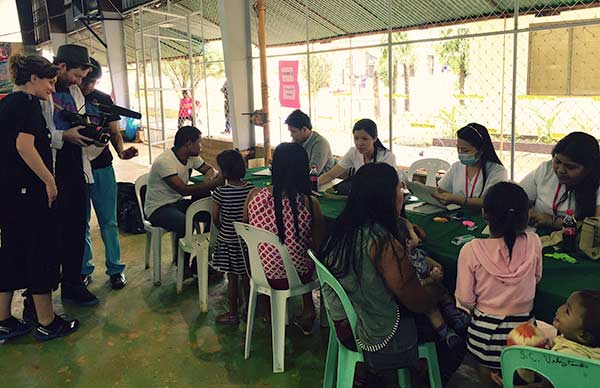 “He learned a ton of filmmaking on that trip,” says Bayou. “That was a huge thing because a documentary is a specific thing. You can’t talk, you can’t laugh when you are doing an interview. You don’t want to be heard on the camera, and so I’m teaching him how to interview, [with] Daniel teaching him the framing, the color, white balance. We taught him everything, like how to use his camera…I think he learned a lot.”
Daniel agrees. “We really put him through a little lab where we had him shoot some footage, look at it, analyze how to improve it and go re-shoot and look at the footage again,” he says. “I think it is really important for a filmmaker not to just know how to write a script, but to know how to do all the genres that you can possibly get hired to do.”
While a trip to the Philippines might not have been a good fit for every film student just starting out, for Nelson it seemed tailor-made. As native of India, he was already well-versed in international travel, and as a minister himself, Nelson was already familiar with the sometimes stark realities of mission work. Still, the opportunity to document the reality of medical missions moved him.
“It was tiring,” he says, “but when you see people’s faces… you know, the sacrifices the doctors are making and the people like family, like somebody’s had a surgery, and then you see them, like, okay, everything is fine for them and their family—on their faces, when you see their smiles, all tiredness is gone.”
The experience also impacted his mentor Daniel Lir. “It was very intense,” says Daniel. “But seeing how the doctors came from the United States on their own dime to help these people and did 60 surgeries a day…seeing how they help these people was totally inspiring.”
“He learned a ton of filmmaking on that trip,” says Bayou. “That was a huge thing because a documentary is a specific thing. You can’t talk, you can’t laugh when you are doing an interview. You don’t want to be heard on the camera, and so I’m teaching him how to interview, [with] Daniel teaching him the framing, the color, white balance. We taught him everything, like how to use his camera…I think he learned a lot.”
Daniel agrees. “We really put him through a little lab where we had him shoot some footage, look at it, analyze how to improve it and go re-shoot and look at the footage again,” he says. “I think it is really important for a filmmaker not to just know how to write a script, but to know how to do all the genres that you can possibly get hired to do.”
While a trip to the Philippines might not have been a good fit for every film student just starting out, for Nelson it seemed tailor-made. As native of India, he was already well-versed in international travel, and as a minister himself, Nelson was already familiar with the sometimes stark realities of mission work. Still, the opportunity to document the reality of medical missions moved him.
“It was tiring,” he says, “but when you see people’s faces… you know, the sacrifices the doctors are making and the people like family, like somebody’s had a surgery, and then you see them, like, okay, everything is fine for them and their family—on their faces, when you see their smiles, all tiredness is gone.”
The experience also impacted his mentor Daniel Lir. “It was very intense,” says Daniel. “But seeing how the doctors came from the United States on their own dime to help these people and did 60 surgeries a day…seeing how they help these people was totally inspiring.”
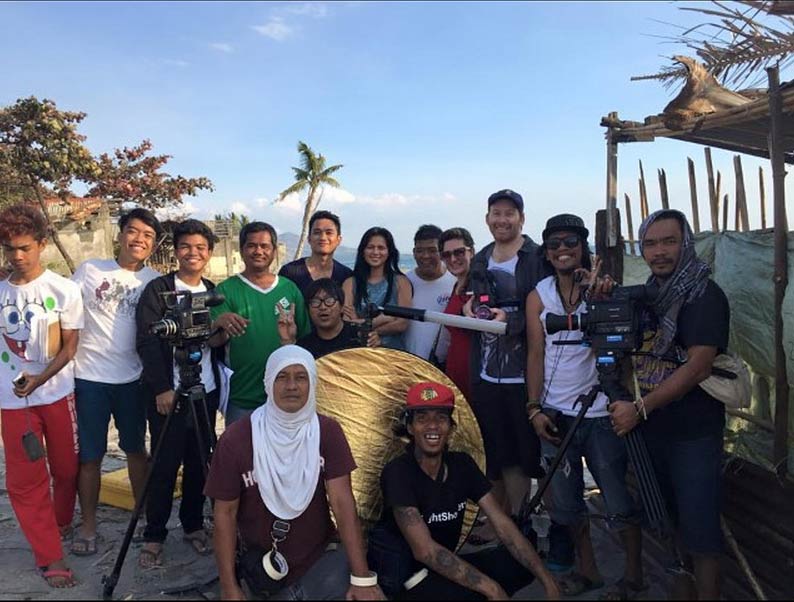 While the documentary shoot itself proved a great learning experience for Nelson, his pairing with the Dream Team has also proved to be a great fit, since both mentors and apprentice look for positivity in their work, and an opportunity to serve the greater good. “We had a good story there that we feel needs to be told,” Bayou explains. “I think having a higher purpose or reason for what you are doing… once you start doing these things, you are going to get haters. You just are. And it is a sign of success….You just have to recognize that actually means you are doing something important.”
Now back in the U.S., Nelson’s next stage of apprenticeship is to learn the editing process by editing the footage he and the Dream Team filmed overseas. But he’s already thinking past his apprenticeship toward future collaborations with his mentors. “We’ll also make some documentaries in India,” he says. “I’m already visiting with them about making the movie in India and U.S. combined.”
While the documentary shoot itself proved a great learning experience for Nelson, his pairing with the Dream Team has also proved to be a great fit, since both mentors and apprentice look for positivity in their work, and an opportunity to serve the greater good. “We had a good story there that we feel needs to be told,” Bayou explains. “I think having a higher purpose or reason for what you are doing… once you start doing these things, you are going to get haters. You just are. And it is a sign of success….You just have to recognize that actually means you are doing something important.”
Now back in the U.S., Nelson’s next stage of apprenticeship is to learn the editing process by editing the footage he and the Dream Team filmed overseas. But he’s already thinking past his apprenticeship toward future collaborations with his mentors. “We’ll also make some documentaries in India,” he says. “I’m already visiting with them about making the movie in India and U.S. combined.”
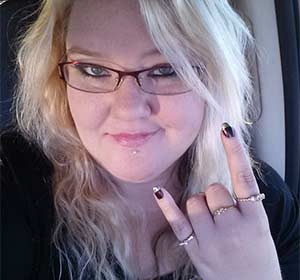 Radio Connection apprentice Kristen Musser of Eagleville, Tennessee is learning what it takes to build a radio show from the ground up, as she creates, scripts and records the radio show Revolver Underground! After getting it all slated, she and mentor Eric Black put it all together and produced the show. Kristen says, “It sounds so good, and even though it’s not my show technically, I’m kinda freaking proud of it.” Next week, Kristen’s running Revolver on her own!
Film Connection apprentice Keith Huff (Louisville, Kentucky) is shooting a goth music video in a church built in the 1800s. When he isn’t running focus on the camera, he’s keeping the coffee brewing (it’s cold!), gaffing and assisting the crew. Day 1—filming trained actors on sword play. Day 2—shooting the band on stage.
Radio Connection apprentice Kristen Musser of Eagleville, Tennessee is learning what it takes to build a radio show from the ground up, as she creates, scripts and records the radio show Revolver Underground! After getting it all slated, she and mentor Eric Black put it all together and produced the show. Kristen says, “It sounds so good, and even though it’s not my show technically, I’m kinda freaking proud of it.” Next week, Kristen’s running Revolver on her own!
Film Connection apprentice Keith Huff (Louisville, Kentucky) is shooting a goth music video in a church built in the 1800s. When he isn’t running focus on the camera, he’s keeping the coffee brewing (it’s cold!), gaffing and assisting the crew. Day 1—filming trained actors on sword play. Day 2—shooting the band on stage.
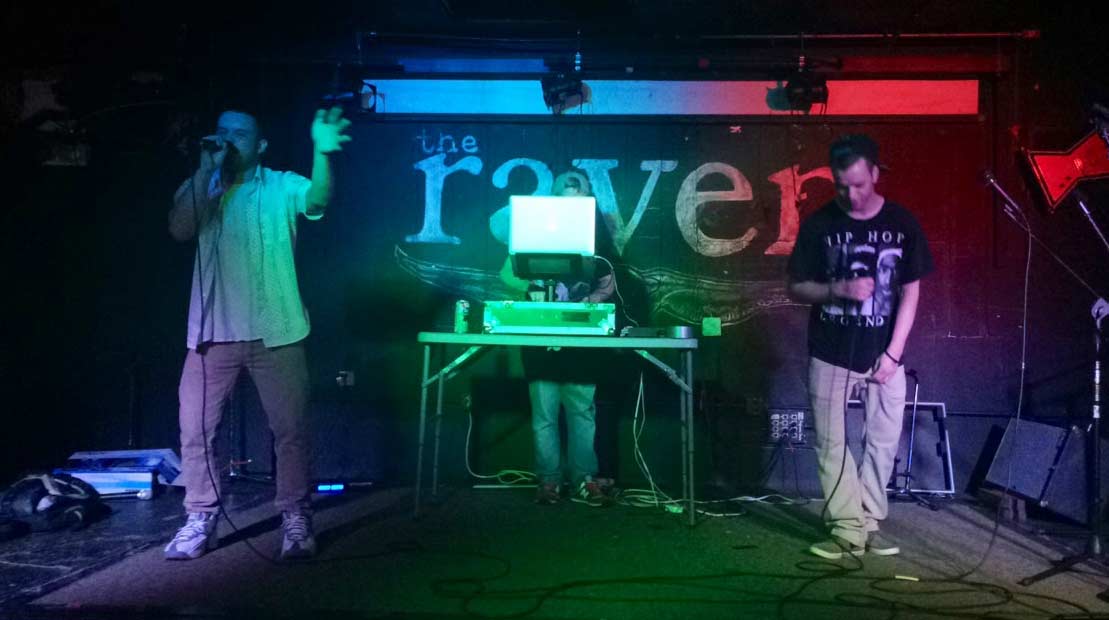 Tim Barry, Recording Connection apprentice rocked the house as one-half of hip-hop duo The Hashassins. They got their friends and fans to turn out, so they got paid for the gig, and Tim had fun talking shop with some of the producers and engineers he was meeting.
Tim Barry, Recording Connection apprentice rocked the house as one-half of hip-hop duo The Hashassins. They got their friends and fans to turn out, so they got paid for the gig, and Tim had fun talking shop with some of the producers and engineers he was meeting.
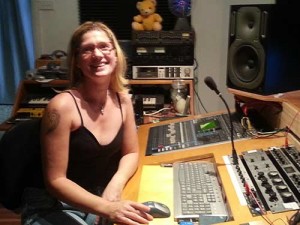 Marilyn “Maz” Allen, a Recording Connection student in Bellingen, New South Wales, Australia, has been working with Solomon Childs (yes that Solomon Childs, the Wu-Tang Clan affiliate), as well as a number of local hip-hop artists. Maz says her mentor Murray Graham is “constantly taking me out of my comfort zone, and I’m loving every minute of it.”
Marilyn “Maz” Allen, a Recording Connection student in Bellingen, New South Wales, Australia, has been working with Solomon Childs (yes that Solomon Childs, the Wu-Tang Clan affiliate), as well as a number of local hip-hop artists. Maz says her mentor Murray Graham is “constantly taking me out of my comfort zone, and I’m loving every minute of it.”
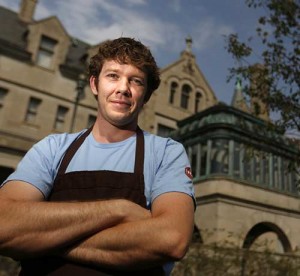 “I believe CASA Schools provides a cutting-edge approach to culinary education. Real world experience is what students need. With the number of students enrolling in traditional culinary schools, the ratio of students to instructors is being stretched to the point of reduced efficiency. One can learn from books, but real experience is gained through hands-on work.”
— Daniel Fitzgerald, Culinary Arts Instructor at Los Angeles Unified School District 2000-Present, Former Sous Chef at the Marriott Marquis, New York City
“I believe CASA Schools provides a cutting-edge approach to culinary education. Real world experience is what students need. With the number of students enrolling in traditional culinary schools, the ratio of students to instructors is being stretched to the point of reduced efficiency. One can learn from books, but real experience is gained through hands-on work.”
— Daniel Fitzgerald, Culinary Arts Instructor at Los Angeles Unified School District 2000-Present, Former Sous Chef at the Marriott Marquis, New York City
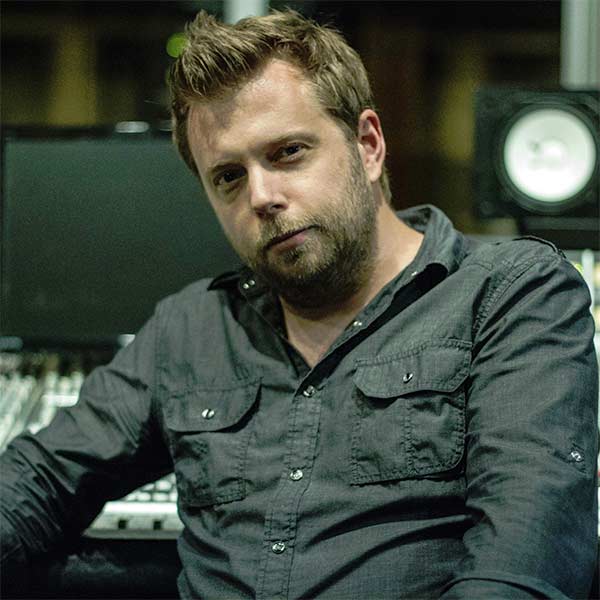 In his many years working in the music industry as a producer/engineer, Recording Connection mentor Steve Sundholm built his career in the LA music scene (including a stint at the famed NightBird Studios), working with such clients over the years as Green Day, Carrie Underwood, Kesha, Madonna, Lil’ Wayne, Lady Antebellum and many others. A few years ago, Steve returned to his hometown of Portland, OR, where we works out of Kung Fu Bakery Recording Studios.
His years of experience, combined with acclimating to what many would consider polar opposites in music scenes, has given Steve a unique perspective to offer his apprentices. In a recent conversation with us, he shared a few insights that we thought would be helpful to all our students. We’ve shared a few of these nuggets below.
ON FINDING OUT WHO AMONG HIS STUDENTS IS SERIOUS ABOUT LEARNING: “The first question out of my mouth [with new apprentices] is, ‘What are you doing here?’ I’ve got to put them on edge a little bit if I’m honest…It shows me how they handle being put on the spot. It forces a neat amount of honesty…[And] I give them my own homework. Dude, are you going to do your homework. If it’s like, ‘Well, I just, you know, I didn’t have time this week. My girlfriend is in town,’ I’m like, ‘Why are you wasting my time?'”
ON WHAT KIND OF EXTRA HOMEWORK HE GIVES: “I give them a lot more Pro Tools stuff than what’s in the curriculum. I try to get them going on Pro Tools week one with their computers because that’s what they really need. I start with very basic Pro Tools stuff like how to add tracks and know what the tools are. Then I throw them right into the deep end of drum edits. It usually takes them two or three weeks to come out the other side on drum edits, but then they know how to use Pro Tools.”
ON THE ILLUSION OF BEING FAMOUS IN THE INDUSTRY: “I don’t know what is the value of being famous…In fact in some ways, you’d have more freedom if you weren’t. And the only way to really get famous is to be on TV. But success means different things for different people.”
In his many years working in the music industry as a producer/engineer, Recording Connection mentor Steve Sundholm built his career in the LA music scene (including a stint at the famed NightBird Studios), working with such clients over the years as Green Day, Carrie Underwood, Kesha, Madonna, Lil’ Wayne, Lady Antebellum and many others. A few years ago, Steve returned to his hometown of Portland, OR, where we works out of Kung Fu Bakery Recording Studios.
His years of experience, combined with acclimating to what many would consider polar opposites in music scenes, has given Steve a unique perspective to offer his apprentices. In a recent conversation with us, he shared a few insights that we thought would be helpful to all our students. We’ve shared a few of these nuggets below.
ON FINDING OUT WHO AMONG HIS STUDENTS IS SERIOUS ABOUT LEARNING: “The first question out of my mouth [with new apprentices] is, ‘What are you doing here?’ I’ve got to put them on edge a little bit if I’m honest…It shows me how they handle being put on the spot. It forces a neat amount of honesty…[And] I give them my own homework. Dude, are you going to do your homework. If it’s like, ‘Well, I just, you know, I didn’t have time this week. My girlfriend is in town,’ I’m like, ‘Why are you wasting my time?'”
ON WHAT KIND OF EXTRA HOMEWORK HE GIVES: “I give them a lot more Pro Tools stuff than what’s in the curriculum. I try to get them going on Pro Tools week one with their computers because that’s what they really need. I start with very basic Pro Tools stuff like how to add tracks and know what the tools are. Then I throw them right into the deep end of drum edits. It usually takes them two or three weeks to come out the other side on drum edits, but then they know how to use Pro Tools.”
ON THE ILLUSION OF BEING FAMOUS IN THE INDUSTRY: “I don’t know what is the value of being famous…In fact in some ways, you’d have more freedom if you weren’t. And the only way to really get famous is to be on TV. But success means different things for different people.”
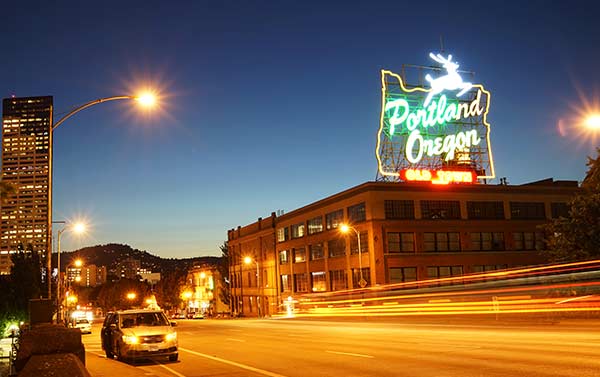 ON THE DIFFERENCE BETWEEN THE MUSIC SCENE IN L.A. AND PORTLAND, AND THE WHOLE “PORTLANDIA” VIBE IN GENERAL: “Well, ‘Portlandia’ is real…Portland prides itself on being the anti-LA…There is more desperation to pay the bills [in LA], so there is a totally different moral standard than what would be acceptable in Portland about how people deal with each other. In LA, you wouldn’t even approach someone unless you’re about to pay them, because it would be rude to expect them to do for free. So, somewhere in between is probably where the rest of America sits, especially in music scenes. Because it’s Portland, I just found that I have to do things differently. I tried to do it the LA way at first, and it just did not work.”
ON THE BEST WAY FOR RECORDING STUDENTS TO GET THE MOST OUT OF THEIR APPRENTICESHIP: “My advice is you get from this program what you take from this program. So the more you do your own extra learning and come in with a million questions each week, the more you’re going to get from it…The people who have gotten the most out of the program – because I’ve had a lot of apprentices – the ones that get the most out of it are the ones that come in with the most questions and they have an agenda for what they want to get out of it that week. They come in just pestering me with questions, and I don’t mind because I’m there to answer their questions: That’s the whole point of the program.”
HIS BEST ADVICE FOR GETTING INTO THE INDUSTRY: “Number one, you’ve got to be really good. Number two, you’ve got to be cool—you have to have good people skills. And that’s it. But just people skills isn’t going to do it… there’s no point in trying to network and do your thing until you’re good.”
ON THE DIFFERENCE BETWEEN THE MUSIC SCENE IN L.A. AND PORTLAND, AND THE WHOLE “PORTLANDIA” VIBE IN GENERAL: “Well, ‘Portlandia’ is real…Portland prides itself on being the anti-LA…There is more desperation to pay the bills [in LA], so there is a totally different moral standard than what would be acceptable in Portland about how people deal with each other. In LA, you wouldn’t even approach someone unless you’re about to pay them, because it would be rude to expect them to do for free. So, somewhere in between is probably where the rest of America sits, especially in music scenes. Because it’s Portland, I just found that I have to do things differently. I tried to do it the LA way at first, and it just did not work.”
ON THE BEST WAY FOR RECORDING STUDENTS TO GET THE MOST OUT OF THEIR APPRENTICESHIP: “My advice is you get from this program what you take from this program. So the more you do your own extra learning and come in with a million questions each week, the more you’re going to get from it…The people who have gotten the most out of the program – because I’ve had a lot of apprentices – the ones that get the most out of it are the ones that come in with the most questions and they have an agenda for what they want to get out of it that week. They come in just pestering me with questions, and I don’t mind because I’m there to answer their questions: That’s the whole point of the program.”
HIS BEST ADVICE FOR GETTING INTO THE INDUSTRY: “Number one, you’ve got to be really good. Number two, you’ve got to be cool—you have to have good people skills. And that’s it. But just people skills isn’t going to do it… there’s no point in trying to network and do your thing until you’re good.”
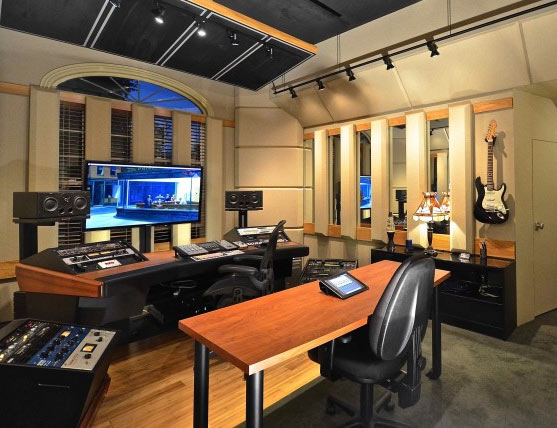 This week, Brian ventured out of Los Angeles and flew to Nashville, Tennessee, AKA “Music City,” to meet with members of Nashville’s elite. Brian met with a host of GRAMMY® Award-winning and multi-platinum engineers, producers and mixers. We will update you further on these exciting visits next week, and what they mean for RRF and Recording Connection.
Our Masters Mentor program is continuing to gain momentum. In Nashville, Brian met with multi-award-winning engineer, producer and educator Bob Bullock, whose credits include Shania Twain, Chick Corea, REO Speedwagon, George Jones, Kenny Chesney, Keith Urban, Reba, Crazy Horse, The Tubes, and dozens of others. We are pleased to announce that Bullock has agreed to join the Masters Mentor program, in order to offer his wisdom and practical knowledge to the next generation of engineers and producers. The concept of mentorship is something near and dear to Bob’s heart, having trained under such greats as Humberto Gatica, Reggie Dozier, Barney Perkins, Roy Haley and Roger Nichols. After his period of apprenticeship, he quickly became a top engineer himself and worked with a variety of top acts. In recent years Bullock has become acutely aware of the rapid evolution the music industry has experienced and the growing need for qualified artist development and education.
Brian Kraft stated, “When Bob and I got together, we were on the same page instantly and talked about the changes in the industry, audio education and the importance of the apprentice/mentorship model in nurturing talent for the future. Bob shares these values with Recording Connection, and we look forward to working with him in the near future.”
This week, Brian ventured out of Los Angeles and flew to Nashville, Tennessee, AKA “Music City,” to meet with members of Nashville’s elite. Brian met with a host of GRAMMY® Award-winning and multi-platinum engineers, producers and mixers. We will update you further on these exciting visits next week, and what they mean for RRF and Recording Connection.
Our Masters Mentor program is continuing to gain momentum. In Nashville, Brian met with multi-award-winning engineer, producer and educator Bob Bullock, whose credits include Shania Twain, Chick Corea, REO Speedwagon, George Jones, Kenny Chesney, Keith Urban, Reba, Crazy Horse, The Tubes, and dozens of others. We are pleased to announce that Bullock has agreed to join the Masters Mentor program, in order to offer his wisdom and practical knowledge to the next generation of engineers and producers. The concept of mentorship is something near and dear to Bob’s heart, having trained under such greats as Humberto Gatica, Reggie Dozier, Barney Perkins, Roy Haley and Roger Nichols. After his period of apprenticeship, he quickly became a top engineer himself and worked with a variety of top acts. In recent years Bullock has become acutely aware of the rapid evolution the music industry has experienced and the growing need for qualified artist development and education.
Brian Kraft stated, “When Bob and I got together, we were on the same page instantly and talked about the changes in the industry, audio education and the importance of the apprentice/mentorship model in nurturing talent for the future. Bob shares these values with Recording Connection, and we look forward to working with him in the near future.”

RRFC is education upgraded for the 21st century.
Get the latest career advice, insider production tips, and more!
Please fill out the following information, and RRFC Admissions will contact you to discuss our program offerings:
Stay in the Loop: Subscribe for RRFC news & updates!
© 2025 Recording Radio Film Connection & CASA Schools. All Rights Reserved.

